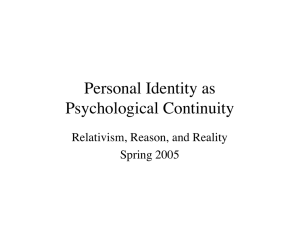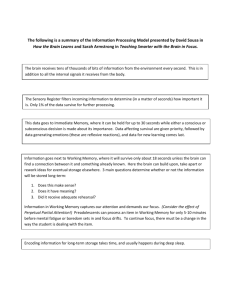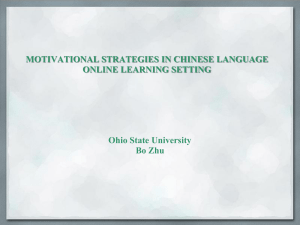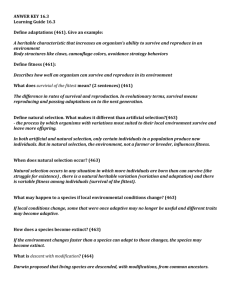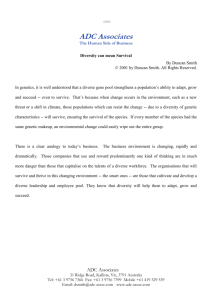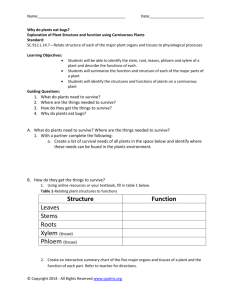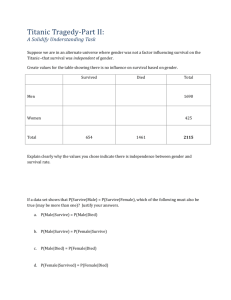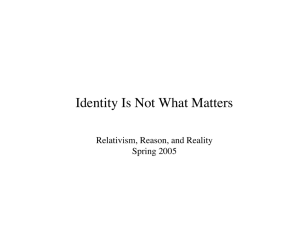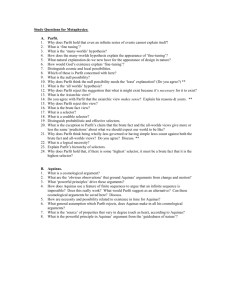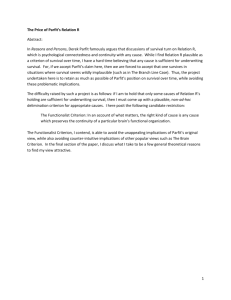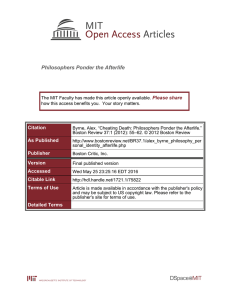fourth handout
advertisement
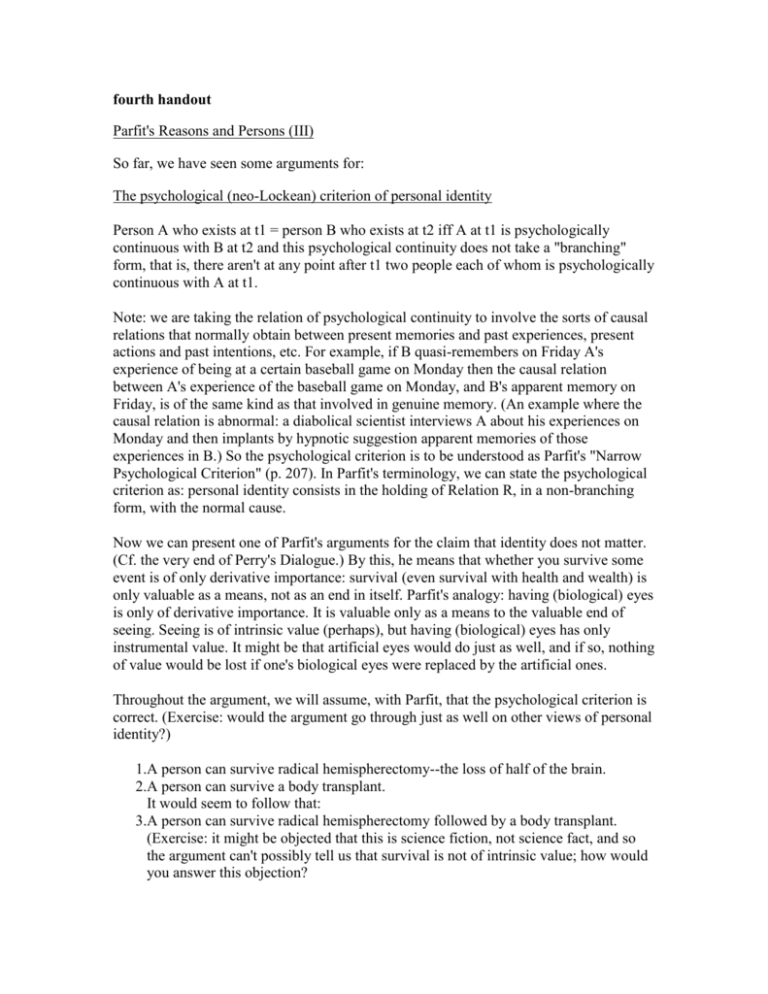
fourth handout Parfit's Reasons and Persons (III) So far, we have seen some arguments for: The psychological (neo-Lockean) criterion of personal identity Person A who exists at t1 = person B who exists at t2 iff A at t1 is psychologically continuous with B at t2 and this psychological continuity does not take a "branching" form, that is, there aren't at any point after t1 two people each of whom is psychologically continuous with A at t1. Note: we are taking the relation of psychological continuity to involve the sorts of causal relations that normally obtain between present memories and past experiences, present actions and past intentions, etc. For example, if B quasi-remembers on Friday A's experience of being at a certain baseball game on Monday then the causal relation between A's experience of the baseball game on Monday, and B's apparent memory on Friday, is of the same kind as that involved in genuine memory. (An example where the causal relation is abnormal: a diabolical scientist interviews A about his experiences on Monday and then implants by hypnotic suggestion apparent memories of those experiences in B.) So the psychological criterion is to be understood as Parfit's "Narrow Psychological Criterion" (p. 207). In Parfit's terminology, we can state the psychological criterion as: personal identity consists in the holding of Relation R, in a non-branching form, with the normal cause. Now we can present one of Parfit's arguments for the claim that identity does not matter. (Cf. the very end of Perry's Dialogue.) By this, he means that whether you survive some event is of only derivative importance: survival (even survival with health and wealth) is only valuable as a means, not as an end in itself. Parfit's analogy: having (biological) eyes is only of derivative importance. It is valuable only as a means to the valuable end of seeing. Seeing is of intrinsic value (perhaps), but having (biological) eyes has only instrumental value. It might be that artificial eyes would do just as well, and if so, nothing of value would be lost if one's biological eyes were replaced by the artificial ones. Throughout the argument, we will assume, with Parfit, that the psychological criterion is correct. (Exercise: would the argument go through just as well on other views of personal identity?) 1.A person can survive radical hemispherectomy--the loss of half of the brain. 2.A person can survive a body transplant. It would seem to follow that: 3.A person can survive radical hemispherectomy followed by a body transplant. (Exercise: it might be objected that this is science fiction, not science fact, and so the argument can't possibly tell us that survival is not of intrinsic value; how would you answer this objection? Imagine that your brain is divided and placed into separate receptive and debrained bodies A and B. Let `Lefty' be short for `the A-body person' and `Righty' be short for the `the B-body person'. 4.There are four possibilities: 1. You do not survive the operation, 2. You survive as Lefty, 3. You survive as Righty, 4. You survive as both 5.The psychological criterion tells us that (a) is correct. Suppose now you have the option of bribing the nurse to drop the right hemisphere on the floor of the operating theatre. If that were to happen, by (3): 6.You would survive as Lefty. However: 7.Nothing of intrinsic value will be lost if you don't bribe the nurse. But since you don't survive if you don't bribe the nurse, nothing of intrinsic value will be lost if you don't survive. So your survival is not intrinsically valuable. In other words: 8.Personal identity is not what matters.
